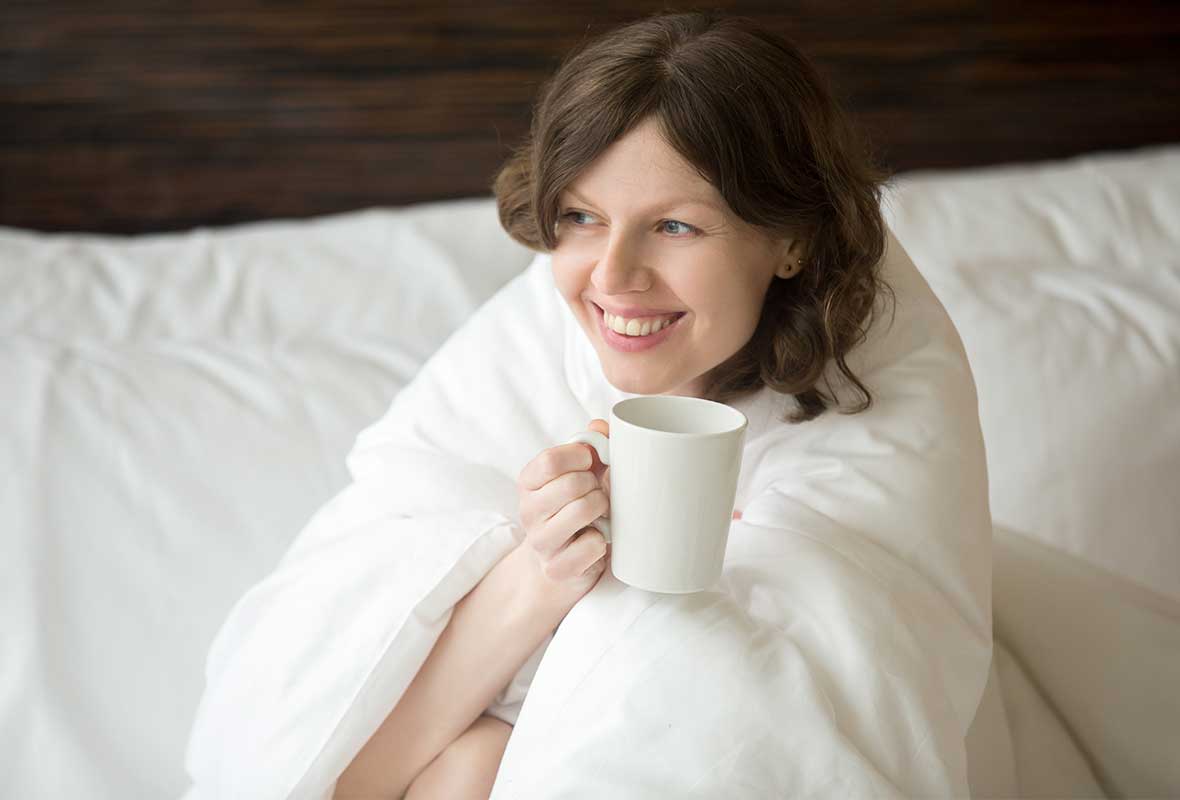Why we struggle to sleep in winter

Temperature Changes
During winter, falling temperatures significantly influence our sleep quality. Cold and dry air makes it harder to fall asleep and stay asleep. Our bodies need to maintain a warm enough temperature to facilitate rest, which can be challenging when the room is too cold. Conversely, turning up the heat too high can lead to discomfort and restless nights, as being overly warm disrupts sleep as much as being too cold. Balancing these temperature extremes is crucial for maintaining sleep comfort during the winter months.
Natural Body Rhythms and Sleep Cycles
Natural bodily rhythms help let your body know when to fall asleep and wake each day. Our bodies have automatic cue to perform certain activities, and one of the biggest natural bodily rhythms we have is related to our sleeping patterns. This body rhythm is known as a circadian rhythm.
When the sun rises and light starts streaming through the curtains in the morning, our bodies use this as a cue to wake up. Even if we try with all our might to fight the urge and go back to sleep, our circadian rhythms tell us that it is time to get up when the sun is up.
When the sun sets and it gets darker outside, our bodies take this as a cue to wind down and get ready to rest. When it is dark, the inner workings of our bodies begin to shut down in order to recharge. It is not our conscience that is telling us to go to sleep, it is our internal clock and natural sleep cycle cues.
When winter arrives, the days are shorter and the nights are longer so there is less sunlight. As a result, our circadian rhythms need to adjust. When the sky is darkening earlier in the evening, the body automatically prepares itself for rest, so we become a little more tired than usual. When the sun rises later in the mornings, the body continues to sleep because it senses no light streaming through the curtains. This misalignment can disrupt our natural sleep-wake cycle, leading to poorer sleep quality and more sleeping problems during the winter.
Adjusting to Winter
Our bodies try to adjust to the reduced light exposure and start to produce more melatonin, the hormone responsible for regulating sleep. This makes us feel sleepy earlier in the evening as melatonin plays a significant role in regulating sleep cycles. However, this doesn’t necessarily lead to better sleep, instead, many find it harder to stay asleep throughout the night.
Adjusting to these changes requires understanding how light influences our internal clocks and finding ways to increase light exposure during the day to sync our circadian rhythms back to our normal sleep hours.
Sleep Science
Serotonin is a hormone that affects the mood. In the summer months when there is plenty of sunlight, our bodies naturally produce more serotonin due to the Vitamin D that is made by our skin cells. When sunlight is in short supply, our serotonin levels automatically fall. This leads to our bodies having less energy and positive feelings.
As a result, we are naturally more tired during the winter months. We long for more sleep because we get less light and serotonin but more of the melatonin hormone. These changes explain why we often experience sleeping problems in winter, feeling a stronger desire to sleep more during the winter months, yet finding it difficult to achieve restful sleep. Managing light exposure and maintaining a consistent sleep schedule can help mitigate these effects.
Understanding How Winter Affects Sleep
Understanding why we struggle to sleep during winter is key to finding solutions that enhance sleep quality. From temperature changes to reduced light exposure, disrupted body rhythms and changes to essential sleep hormones, there are several reasons why falling and staying asleep in winter may be more difficult. By managing these sleep challenges winter brings through optimising bedroom temperature, maximising daylight exposure and resyncing sleep patterns, you can enjoy a better sleep this winter.
If you’re still struggling to sleep during winter, read up on more of our best sleep tips for winter and browse our range of bedding and mattresses to ensure you have everything you need to sleep well this winter.